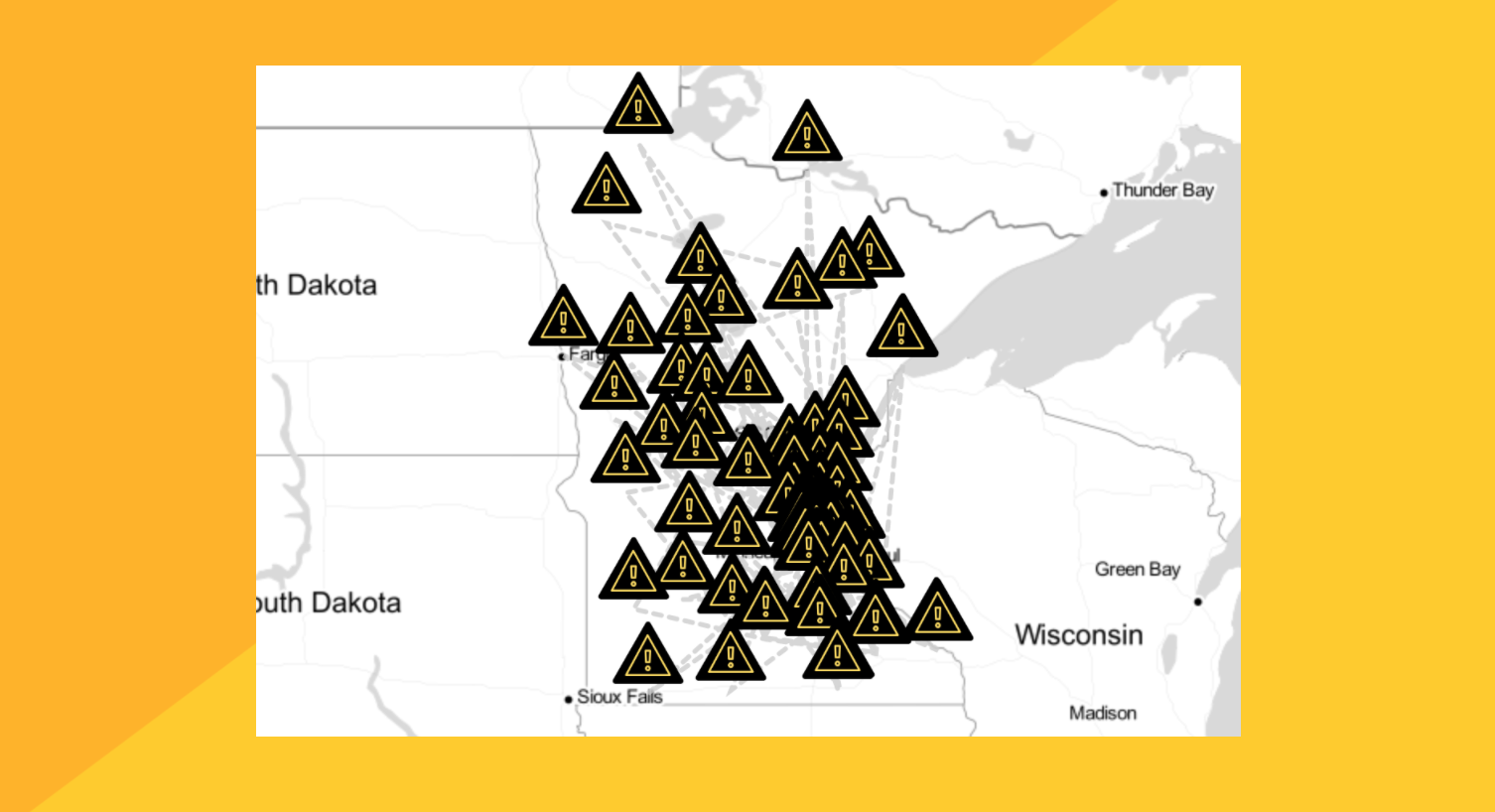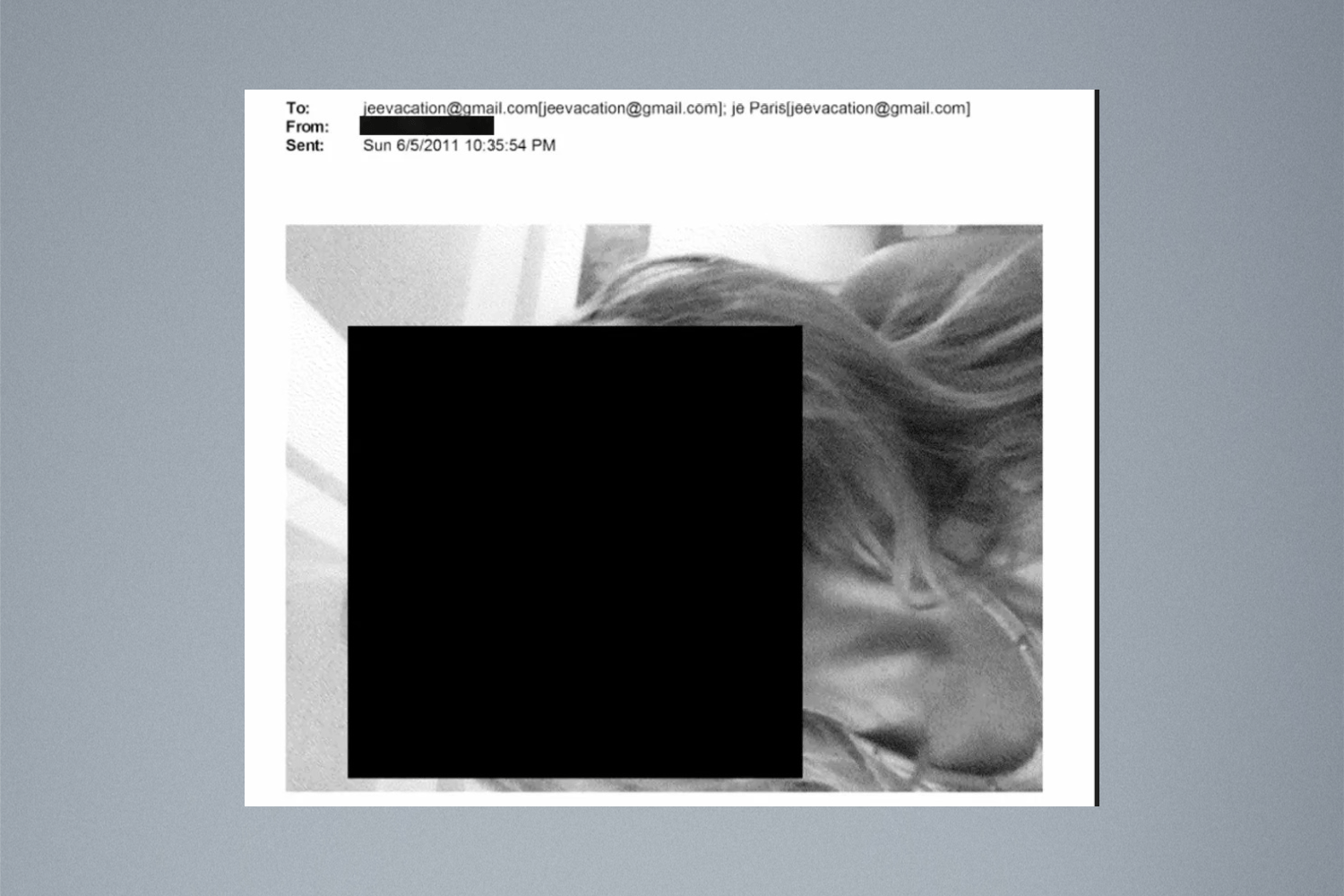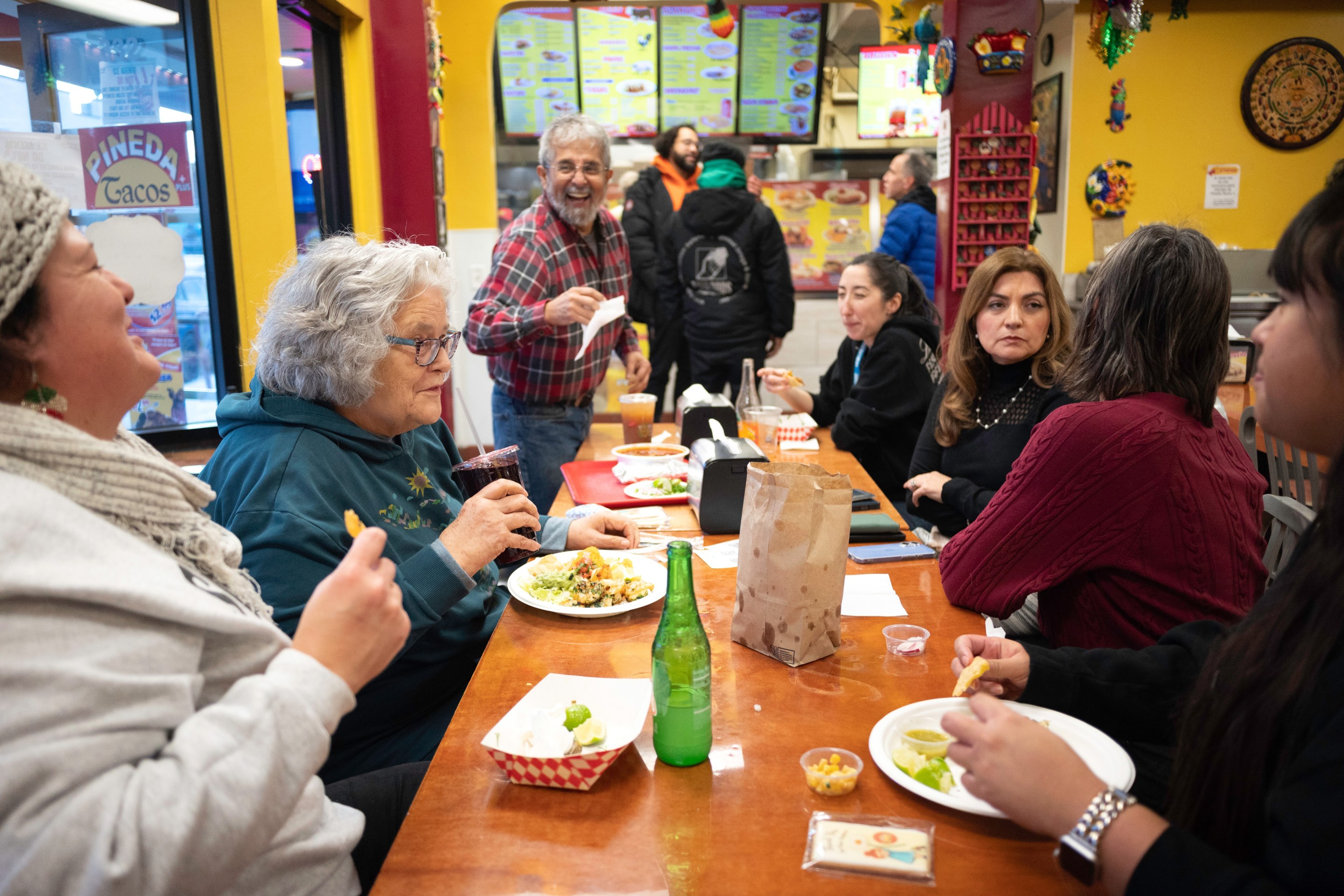In 1995, the Minnesota Supreme Court wrote a constitutional protection to abortion rights with broader preservation than the federal government offered under Roe V. Wade. That hasn’t stopped the passage of numerous anti-abortion laws—mandates that include a 24-hour waiting period and state-sanctioned anti-choice counseling—in the decades that followed. Nor has it stopped almost 100 fake clinics from popping up across Minnesota.
Fake clinics often call themselves “crisis pregnancy centers,” and they target pregnant people searching for abortion care with predatory marketing tactics. They offer pregnancy tests and counseling, but their aim is to confuse abortion seekers, dismissing their bodily autonomy with anti-choice coercion.
And they outnumber real abortion clinics in Minnesota 13 to 1.
(If you're having trouble viewing the map below, you can view it here or refresh the page using command + shift + r.)
“These fake clinics do not serve many patients, but they are getting a ton of money in order to lie to pregnant people,” says Erin Maye Quade, advocacy director for Gender Justice, campaign manager at UnRestrict MN, and former Minnesota House Representative.
UnRestrict MN is a coalition of 26 community partners in Minnesota working to protect and expand access to abortion care (and reproductive health care in general), as well as destigmatizing the topics. Part of their work is educating Minnesota residents about fake clinics in the area and providing resources for real care.
“We are working to create a future that we want in Minnesota where every person can decide whether or not they become a parent and raise children in safe communities,” Maye Quade says.
The Abortion Climate in Minnesota
Right now, there are only eight clinics in the state that perform abortions. Three perform in-clinic abortions; four only offer medication abortion, two pills that abortion seekers can take to end their pregnancy. Just the Pill, a mobile clinic, provides the abortion pill in rural communities.
For residents outside of the Twin Cities, Duluth, and Rochester, getting abortion care means taking a long drive. (Ever seen movies like Unpregnant or Plan B?) That means getting time off work to take the trip, have the abortion, and recover, which is part of the reason lack of abortion access hurts lower-income and rural people the most.
With such a bad reputation in the reproductive justice community, it’s hard to understand why fake clinics succeed. But there are two big reasons: They’re good at what they do, and they’re state-funded.
They understand their audience, often lower-income people who had an unplanned pregnancy. Because sexual health education is so poor in the United States, these clinics can manipulate those seeking care who may not understand the laws around abortion in the state or realize what their options are.
Ninety-two percent of abortions are performed before week 13, and the abortion pill stops being an option after week 11. In-clinic abortions are permitted in Minnesota up to 20 weeks, but Planned Parenthood in St. Paul is the only clinic that can perform them after 15.6 weeks.
Fake clinics give false information about abortion access, and if a pregnant person is close to missing their window of care, they’ll lie about abortion laws to cause confusion. And if someone finds out they’re pregnant later because of delayed information that slowed down their care, they’re driving to St. Paul—regardless of where they live —to become part of the only 7 percent of abortions that happen between weeks 14 to 20.
No matter where they go, all abortion seekers must receive state-directed counseling. According to Planned Parenthood, that includes state-mandated counseling designed to discourage them from having an abortion and waiting 24 hours before the abortion will be provided to, hopefully, change their minds.
Parents of a minor must be notified before an abortion per the Parental Notification Law, even if the abortion seeker has an abusive relationship with their family and no longer lives with them. A judicial bypass may be provided, but it often only continues to consume time that abortion seekers do not have.
Medical professionals who don’t follow these rules could go to jail for a felony penalty.
Like Planned Parenthood, fake clinics receive donations. Unlike Planned Parenthood, fake clinics receive substantial funding from the state. The Minnesota Department of Health paved the way for funding to be available for fake clinics with the “Positive Alternatives Program.” (Maye Quade says UnRestrict and other organizations like it don’t use that language when talking about the funding, because it further stigmatizes abortions.)
In 2021 alone, 27 five-year grants were awarded through the fund, with $2,808,891 going to fake clinics. Wakota LifeCare in West St. Paul, the fake clinic where UnRestrict gets the most traumatizing client calls about extreme harassment and brainwashing from alt-right members, receives immense funding from the state of Minnesota. Including donations and funding in 2019, Wakota LifeCare made $1,250,405 in 2019 in income, according to their most recently available 990 form. Executive director Dan Saad took home $91,639 in 2019, the latest year with data available.
And because fake clinics operate as 501(c)(3), they don’t have to pay taxes, either.
Relying on Lies and Fear
Many abortion seekers ultimately find themselves at fake clinics by mistake while searching online for abortion access in Minnesota. There are different levels of allure that fake clinics use. At the more than 20 fake clinics positioned in the Twin Cities and surrounding suburbs, this means lying.
Some promise “state of the art” pregnancy tests that are no different than the ones at Walgreens, others say they’ll have conversations about abortion, which is often code for gaslighting that includes religion, “conservative family values,” and shame. One of the most infamous “treasures” people may leave with? Keepsake ultrasounds.
Maye Quade explains that the ultrasounds performed are never diagnostic; they’re purely for aesthetics. While most medical professionals can tell the gestational age and size from an ultrasound, fake clinics can’t—and that’s because they aren’t qualified to read them.
“The way that these buildings advertise themselves as if they are medical buildings and are often zoned as clinics is terrifying,” she says. “They provide no real medical care. They often dress in scrubs and pretend to be actual medical professionals. They just print out a photo of the heartbeat and tell you to put it on your fridge.”
Fake clinics go as far as using names very simlar to real abortion clinics, and they often open up next door to Planned Parenthoods. “Options for Women,” “Birthright,” and “Pregnancy Choices,” are all common names fake clinics use to convince potential clients they believe in freedom of choice.
At Robbinsdale Clinic—a real abortion clinic that provides actual reproductive care—Pro-Life Action Ministries bought the building next door. From their nearby post, they can harass employees and people going into the clinic to seek care. When Robbinsdale Clinic built a fence to protect themselves, Pro-Life Action Ministries built a deer stand. They climb on top of it and yell at people.
A fake clinic opened up across from WE Health in Duluth (formerly Women’s Health Center). “Women’s Care Center,” as the fake clinic is called, organizes street harassers to pose as fake escorts and confuse those walking into WE Health by guiding them into the wrong clinic, assuring them this is where they will get abortion care.
“Violence at real clinics is on the rise,” Maye Quade says. “It tracks alongside the rise of white supremacy terrorist violence because their ideologies are so similarly aligned. It is about controlling what people can and cannot do.”
While fake clinics recruit alt-right individuals to harass abortion seekers, many often stick around until the patient exits the building to convince them to take the “abortion pill reversal.”
The abortion pill is two different medications used to end a pregnancy. The first pill, mifepristone, which you take at the clinic, blocks hormones that would keep the pregnancy from growing. The second pill, misoprostol, taken up to 48 hours later, causes cramping and bleeding that empties the uterus. The second pill must be taken for the abortion to fully complete, and fake clinics know this well.
“Did you change your mind?” “Do you regret your choice?” – these are the phrases fake clinics yell at patients who leave their appointments after taking their first pill. They offer up a solution – the “abortion pill reversal.”
The “abortion pill reversal” is a dose of progesterone and is not approved by the FDA—because it doesn’t work. Mifepristone, the first pill taken, is already working to block progesterone. Researchers found no evidence that a pregnancy was continuing after the “abortion pill reversal,” and in a study in 2019 to test the efficacy of the reversal, 25 percent of participants had to be transported to the hospital via ambulance because of severe vaginal bleeding.
Moving toward a state of choice
Although abortion is protected in Minnesota, it hasn’t stopped anti-abortion extremists from wielding their power to isolate and exploit abortion seekers. But not all Minnesotans think alike, and a majority are pro-choice.
Eighty-two percent of Minnesota voters think abortion access should not be political, and 74 percent agree that people should be able to access abortion without government interference. Although not all voters themselves would get abortions and may not necessarily agree with the pro-choice movement, the findings show they stand by residents who seek out the care that best fits them.
“Minnesotans have different beliefs on what they may do in a situation, but what they don’t want is the government telling them what to do,” Maye Quade says. “UnRestrict is a movement for everyone, even if somebody wouldn’t have an abortion, but they support people being able to make their own decisions.”
While fake clinics may not be going away anytime soon, UnRestrict MN is working to educate the public that abortion is ok and normal, even if every other billboard outside of the Twin Cities (and a few inside) tell you the opposite. After all, it’s about how empowering the freedom of choice can be, and that’s where fake clinics lose.
Update, 8/27: An earlier version of this story said there are seven abortion clinics in Minnesota—there are eight counting Just the Pill's mobile operation. It also stated $3,357,000 of the state budget was awarded to fake clinics through the Positive Alternatives Grant. That number reflects Positive Alternatives' full budget. The amount awarded to fake clinics was $2,808,891.







